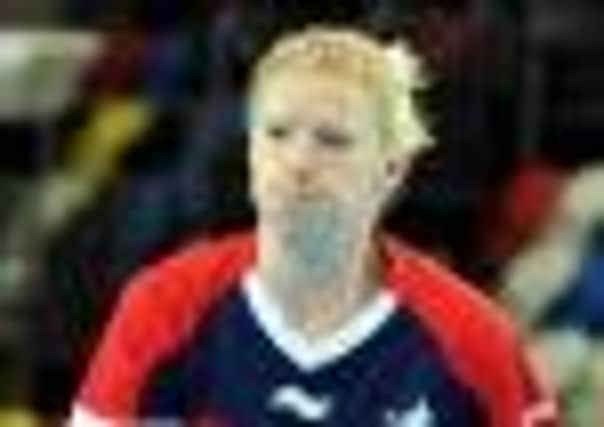Olympics: Odyssey near end as London looms for Lynn McCafferty


When the Games begin, the finished product will be spread out for the entire world to see.
It is, admits the team’s captain Lynn McCafferty, an eclectic bunch. Some, like the 33-year-old from Lanarkshire, were among handball’s small number of devotees, enthused largely by what they had found on the late-night schedules of Eurosport. Most were late converts, drawn in by the prospect of competing at the Olympics and a competitor’s challenge to transfer their skills from one discipline to excel in another.
Advertisement
Hide AdAdvertisement
Hide AdHence GB’s line-up includes a former winner of Norway’s Big Brother, an ex-hockey international and a one-time basketball hopeful, brought into the fold through the talent search which was fronted by Steve Redgrave.
“We’ve got a player on our team, Kathryn Fudge, who came through that process and she’ll be an important part of our team,” McCafferty says. “It’s something that we needed. We didn’t have tall players but she came through a scheme called Sporting Giants. And it showed you could transfer to handball if you committed to it as a full-time career.”
There were some teething troubles at the outset. Most of the 4000 applicants were rejected. Those who survived the initial cuts had to endure trial by embarrassment as they were thrown in at the deep end.
“It was funny to watch,” McCafferty freely admits. “We still have a bit of a laugh about it. Because Kathryn came from basketball, she brought different skills which eventually helped her. The thing was that she didn’t need much coaching. She just picked it up by herself. It was good to see her proving that it could be done. She had to push herself mentally as well as physically. She’d reached a good level at basketball. And she had to give that up to go to Denmark and start at the bottom of a sport again.”
Most of the squad were given their baptisms in Denmark, where various players were placed within Division B clubs in the country’s Superleague to accelerate their learning curves. Amid funding cuts and the sacrifices demanded to live overseas, the men and women of Team GB have emerged from 18 months of collective training in London with ambitions to do more than grace the first phase of the Olympic competition.
Talk of a quarter-final place is not deemed as mere fantasy, even if such an achievement might pass largely unnoticed amid the hubris of London. McCafferty’s side have tested powers such as Russia and Brazil in their group. But they have also undergone trial by results until they were adjudged worthy of an automatic place in London.
Few may notice what they achieve. “It is a minority sport,” McCafferty acknowledges. “But we’ve just had to grab this opportunity with both hands. We have to show we’re not just at the Olympics to walk on the court and take a bow. We’re going there to compete. We didn’t just automatically get a host spot. We had to work for three years to make sure the British Olympic Association had enough faith in us.”
Once the Games are over, a normal life and retirement from the sport beckon. “I’m excited it’s coming but I’m also excited the build-up is coming to an end,” she says. There will be moments to savour: the opening ceremony, her stint as a torch bearer, and, of course, the thrill.
Six years of toil for two weeks of magic. “I would do it again,” she declares. “It’s hardly the worst thing you can do with your life, to go away and do the sport you love full-time.”